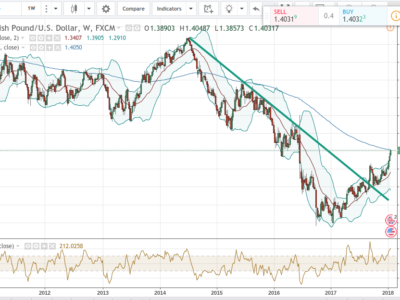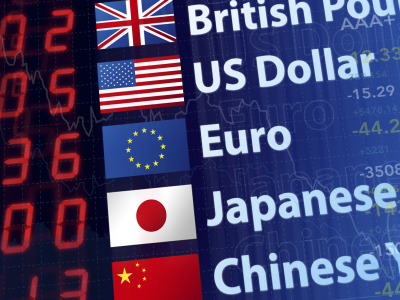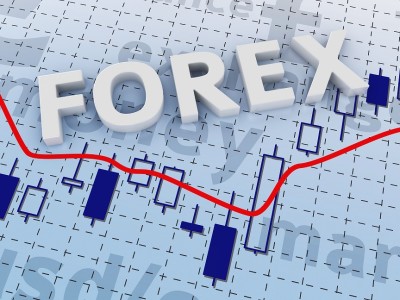The two most important statistical figures in trading : Win Rate and Risk/Reward
 How often have you felt invincible after having 5 winning trades in a row and then lost a bunch of money on the 6th trade because you took too much risk? How many times have you changed your trading strategy or tweaked your indicator settings after you lost 4 trades in a row because you thought your strategy wasn’t working?
How often have you felt invincible after having 5 winning trades in a row and then lost a bunch of money on the 6th trade because you took too much risk? How many times have you changed your trading strategy or tweaked your indicator settings after you lost 4 trades in a row because you thought your strategy wasn’t working?
If you understand fully how statistics and probabilities work, chances are that you’d be a profitable trader by now. Trading is exciting and fun, but math is boring and hard. That’s why we traders don’t like to mix them. Unfortunately, if you fail to embrace the two, becoming a profitable trader will be an impossible task. Trading is statistics!
In this article we’ll show you why knowing statistics and understanding probabilities is so important for your success in trading and how it will help you make better trading decisions.
Hot Hand Fallacy (Clustering Illusion)
We’ve all seen basketball or baseball players perform so well that it seems like they have the Midas touch and possess the ability to score at will. Scientists call this phenomenon the ‘Hot-Hand-Fallacy’, or the ‘Clustering Illusion’. Although it’s completely random whether one player scores or misses – except for the individual level of skill – we tend to claim that she or he is “hot” when we see them score in streaks.
However, research demonstrates that winning and losing streaks only exists within normal statistical probabilities. Therefore, what we call a hot-hand is nothing abnormal, but only a normal statistical outcome. If a player has a hit rate of 60%, is it impossible or unlikely for him to score 14 shoots in a row? Definitely not. The likelihood of it happening might be low, but statistics suggest that every 1000 shots, she or he’ll have 14 consecutive hits at least once.
Lesson 1: Winning and losing streaks are completely normal. Start thinking in big sample sizes. In the field of statistics, one game alone doesn’t have any significance in telling you whether something is normal or completely unlikely. The same holds true for trading. Don’t just analyze 1 or 2 trades. Collect a database of 200, 300 or 400 trades before you can make an educated decision. Don’t blindly change or alter your trading approach after a few dozen trades!!
Randomness Sucks
We as humans are particularly bad at understanding probabilities. We get into our cars every day and don’t worry for a second about what could happen, whereas we are very worried when we get into a plane twice a year for our summer holidays.
However when it comes to accepting randomness humans do an even worse job. We don’t like to admit that we cannot control, predict or understand what’s going to happen. We, therefore, try to come up with fixed rules for random events.
In craps, people throw dice harder when they want to see a high number and weaker when they bet on small numbers. Don’t you tend to think that after seeing 9 heads in a row, it’s more likely to see tails in the next coin flip? If you answer with yes, do yourself a favor and keep on reading.
Lesson 2: Accept randomness. One trade is completely independent from the one before. To make it even worse, the outcome is totally random and out of your control as well. If you have 5 winning trades in a row, this won’t help you to make a prediction about the outcome of the next trade.
You Don’t Suddenly Become a Better Trader
Research shows that individual investors and traders trade more actively when their most recent trades are successful.
The most important thing to be aware of when it comes to the Hot-Hand-Phenomenon is that the perception of your own level of skill changes if you experience a winning or losing streak.
Basketball players will take shots from spots that are harder to make and, therefore, harm their team. So too, when it comes to trading, you are more likely to risk more than usual after having 4 winning trades in a row. The reason is that you might think that having 4 winning trades in a row is because of your outstanding abilities to pick a winning trade. Dead wrong. You are still the same trader you were 4 trades earlier.
How often have you wiped out the gains of a month of good trading because you put on too much risk on just one trade because you felt you knew where markets are going?
Lesson 3: You don’t suddenly become a better trader. Therefore, never change your approach to your money and risk-management. If you have the tendency to trade more when your past performance was positive, a good idea is to walk away from your trading desk for a while and clear your head.
The Two Most Important Trading Statistics
The two most important statistical figures in trading are your strategy’s win rate and the risk-reward-ratio of a trade. While seeing them as separate statistics, they have no significance. Together they can tell you whether you’ll make money or not – even before entering a trade.
Lesson 4: Collect data in your trading journal and start crunching numbers. A trading journal is a must have for every serious trader because a good trading journal shows you exactly what to do in order to make more money.
How Good Is Your Trading Strategy Really?
Don’t you think that if you have 10 losing trades in a row, your trading strategy doesn’t work and you are a bad trader? It probably doesn’t even take 10 losing trades to make you doubt your trading strategy…What if we told you that it’s not the case and the system you are about to give up on, could make you all the money you ever desired? If traders would stick to their strategies just a little longer and not give up so quickly, we’d see a lot more profitable traders.
Lesson 5: Losing and winning streaks are normal and no matter how good you are, they’ll happen. Don’t give up on your method too early. Every time you change your trading strategy, you start from zero again.
Conclusion: Make Your Own Luck With Consistency
- Don’t make decisions based on the outcome of 1, 2 or 3 trades. Start thinking in big sample sizes.
- Accept randomness. The outcome of a trade is completely random and independent of the one you took before.
- You are never suddenly a better trader. Therefore, always apply the same tactics to your money and risk-management.
- Love your trading journal and start analyzing as much of your own data as possible.
- Streaks are normal. Next time you are about to change your trading strategy think twice and stick to it a little longer










